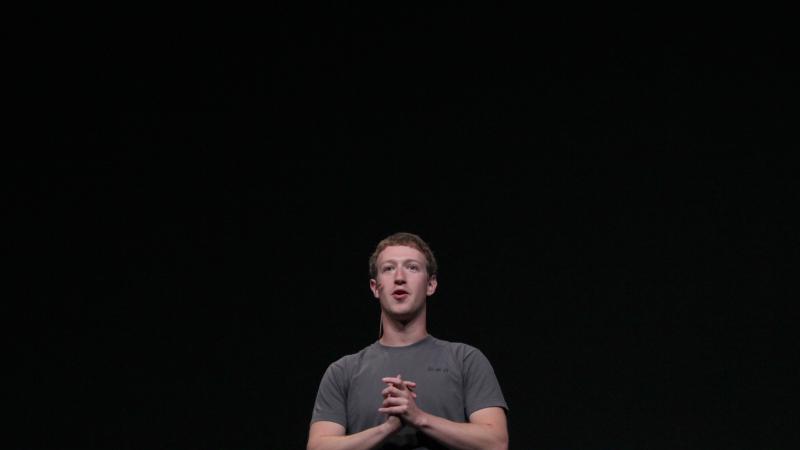
Generally speaking, earnings reports aren’t exactly riveting. But Facebook is a company with good characters, high stakes and a lot of plot lines—it’s almost Netflix worthy. In Tuesday’s quarterly call, the tag-team dynamic between biz-baroness/COO Sheryl Sandberg and Facebook’s iconic young CEO Mark Zuckerberg brought to life the company’s core tension.
The Harvard-pedigreed hacker ethos that launched Facebook has now handily rounded up a base very nearly as big as the population of China. The social network is a goldmine of unprecedented scope and reach … and the reach itself is the gold. With the mobile nut cracking at last, a post-IPO Facebook is figuring out this whole “making money” thing—but it’s still got a lot of mouths to feed. With a citizenship more than three times the size of the U.S., Facebook is the web’s biggest nation, aside from the web itself.
But how do you govern the world’s premier social platform while letting both users and brands feel like they call the shots?
Facebook Isn’t Just A Company—It’s A Country
That quaint social site that connects you to your 1.1 billion best friends might be anathema to your productivity, but make no mistake—the team down at Facebook is getting ‘er done. The formerly ragtag band led by a be-hoodied Mark Zuckerberg, is looking like an increasingly well-oiled machine, trucking along into the second quarter of 2013 with a cheery earnings report that hit all the major prospective notes it set out in quarters prior.
Raking in $1.81 billion in revenue (against an expected $1.62 billion), Facebook is delivering on the mobile promise it made in Q3 2012. Considering its resources, the company was egregiously slow to ship an iPad app (that fateful day finally came in October of 2011). But now? Yep, Facebook is actually morphing into a mobile-minded company, just like Zuck boldly declared last year as the company stood mired waist-deep in a major post-IPO stock slump.
The Greatest Trick That Facebook Ever Pulled
Most importantly, how do you make money from over one billion users without letting on that they’re not just using the product, they are the product? Well, make sure they’re still having a good time, for one.
Trot Instagram out every so often with new stuff like video (but do not mess it up!) to boost morale and approval ratings. Keep users happily chugging along on Candy Crush Saga. Name-dropped by Facebook (sorry, Zynga!), developer King has ascended the throne when it comes to hyper-addictive “casual” gaming on the social platform. After Facebook’s monogamous relationship with social gaming crack-dealer Zynga dissolved, King’s crown jewel has been ruling since January 2013.
But what’s the main way to keep the good citizens of FacebookVille happy? Make all that profitable stuff—you know, ads—feel totally organic, invisible even. All while making those very same ads aggressive and visible enough to keep unbridled, exposure-hungry brands funneling cash into the main revenue coffers. Show people content they want to see.
Sandberg renewed her commitment to the task of smart ad targeting, Sisyphean as it may be. She cited custom audiences, which let brands differentiate old vs. new customers as an effort to help businesses on the platform home in on what resonates with customers. Relevance is what keeps the Facebook ecosystem feeling balanced.
Targeting And Beyond: Keeping It Real
Behind the curtain, Facebook literally (and famously) tinkers with its formula on a daily basis, tweaking what (and who) it surfaces in users’ News Feeds and how to sprinkle promoted content in with a measured hand. The company expects News Feed ads—you know, the stuff in between the vacation photos and yard sale announcements—to remain its primary source of revenue well into the rest of the year. “We’ve done a lot of work around targeting,” Sandberg said. “News Feed ads work.”
She went on: “As you think about different industries using the power on online marketing, you see different levels of adoption. But I’m a believer that [Facebook] is where people are spending their time—and any marketer that’s trying to reach people is going to spend their resources here as well.”
The Faces Of Facebook
And what of Facebook’s restless, maybe hapless citizens?
Well, perhaps they aren’t so restless. Engagement on Facebook remains insanely high, even by Facebook’s semi-unmoored new usage metrics: On an average day in June, 699 million people used Facebook. Those 699 million (give or take) Facebook denizens racked up a mind-bending 20 billion minutes each day on the site in the same month. That’s a lot of Likes, clicks and ad impressions.
The Inscrutable Hacker King’s Modest Goal
Considering the awkward early years, Zuckerberg is acting the part of CEO more convincingly these days. But is he the benevolent dictator of Facebook nation, acting at the collective behest of his 1.1 billion subjects—or just the accidental boy-king of Silicon Valley, humoring its mores while just sort of doing his thing behind the scenes?
Of course, savvy Sandberg and the rest of the board have seats at the table and strings of their own to pull. Not to mention that stockholders own stakes in the world’s biggest virtual territory that also happens to be a public company. Whatever flavor of ruler he’s evolved into over his nine years of empire building, Zuckerberg remains casual about Facebook’s mission impossible:
Reaching a billion people was this big rallying cry for the company for a long time. And reaching a billion users was a great first thing to focus on… but in a way it’s actually kind of just an abstract. There’s nothing magical about a billion.
Oh, no?
The real goal is to connect to everyone in the world.
















